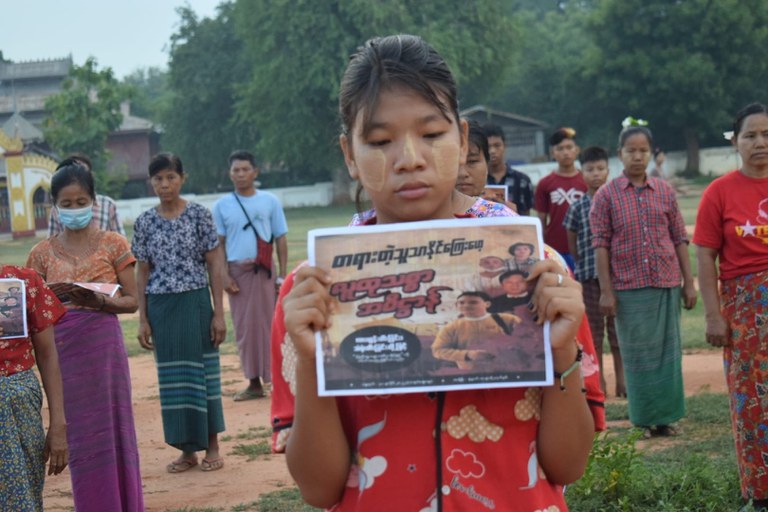Russia backs China on Taiwan as sanctions, incursions expected during Pelosi visit
Russia on Tuesday backed Beijing’s disapproval of an expected visit by U.S. House of Representatives Speaker Nancy Pelosi to the democratic island of Taiwan, calling it a “provocation,” as China’s People’s Liberation Army (PLA) engaged in live-fire military exercises across the Taiwan Strait. Foreign ministry spokeswoman Maria Zakharova told a news briefing that Moscow opposes Taiwanese independence “in any form.” Her comments came as the official media of the ruling Chinese Communist Party (CCP) made no mention of escalating tensions across the Taiwan Strait after Chinese leader Xi Jinping warned President Joe Biden not to “play with fire” ahead of Pelosi’s planned arrival on Tuesday evening. Neither the People’s Liberation Army Daily nor the CCP’s official newspaper, the People’s Daily, made any mention of the story, with the People’s Daily leading with agricultural developments in Fujian. However, the English-language Global Times ran a top story titled “Tension escalates hours ahead of Pelosi’s potential Taiwan visit as PLA remains fully prepared for any crisis.” It said any visit by Pelosi would be “a serious provocation and violation to China’s sovereignty and territorial integrity which would be met with severe countermeasures from the Chinese military.” The article largely repeated comments also made on Tuesday by Chinese foreign ministry spokeswoman Hua Chunying. It also cited a maritime safety warning to shipping reporting live-fire military exercises off Weifang in the Bohai Sea on Aug. 3, while “military training in parts of the South China Sea” was reported by the Guangdong maritime authorities. The paper’s former editor Hu Xijin tweeted on Tuesday: “Based on what I know, in response to Pelosi’s possible visit to Taiwan, Beijing has formulated a series of countermeasures, including military actions.” Hu also tweeted on Monday: “If she dares to stop in Taiwan, it will be the moment to ignite the powder keg of the situation in the Taiwan Straits.” Tacit understanding? Current affairs commentator Johnny Lau said he expects there is more likely to be a tacit understanding between Beijing and Washington enabling Xi to step up the appearance of military threat to boost his support at home. “Pelosi’s visit to Taiwan is highly beneficial to Xi Jinping, who is taking the opportunity ensure that top military and political figures must unite around him ahead of the 20th CCP national congress [later this year],” Lau said. “The mainland could have the PLA’s planes cross over the median line of the Taiwan Strait, and neither the U.S. nor Taiwan will attack them,” he said. “Both sides know where the lines are drawn, and whoever fires the first shot will be responsible [for starting a war],” he said. “Everyone is flexing their muscle in what is both a political show and a military gesture aimed at certain circles,” Lau said. Wu Qiang, an independent researcher at Beijing’s Tsinghua University, said China could also announce sanctions on members of the Congressional delegation, including Pelosi, including banning them from entering China. “If the Chinese ministry of foreign affairs imposes sanctions after Pelosi’s visit to Taiwan, it would be no more than the sanctions imposed on other U.S. politicians in recent years,” Wu said. “They could ban them from entering China or Hong Kong, freeze their assets there, and ban companies from doing business with their families,” Wu said. Diplomacy failures He said Beijing has little other recourse short of military action. “Pelosi’s visit to Taiwan marks an unprecedented change in Sino-U.S. relations, which is of course due to the failure of Chinese diplomacy [in recent years],” he said. China has also suspended imports from 35 Taiwanese exporters of biscuits and pastries since Monday. Taiwan’s Central News Agency reported on Tuesday that China has listed 2,066 foodstuffs as being subject to “import suspension.” Wu said such trade sanctions would likely continue as international support for the democratic island, which has never been ruled by the CCP, nor formed part of the People’s Republic of China, grows. He said China could also try to restrict international maritime access to the Taiwan Strait. “They could declare that the Taiwan Strait is China’s territorial waters, and its airspace part of China’s airspace, and say that foreign vessels [or aircraft] must get approval from China to enter them,” Wu said. International relations scholar Zhong Shan agreed. “China will definitely react in some way, maybe by including Taiwan in its Air Defense Identification Zone (ADIZ) … with military aircraft flying over or around the island,” Zhong said. “It’s fairly easy for the foreign ministry to whip up populist sentiment, but it’s not so easy to suppress it again,” he said. Translated and edited by Luisetta Mudie.




